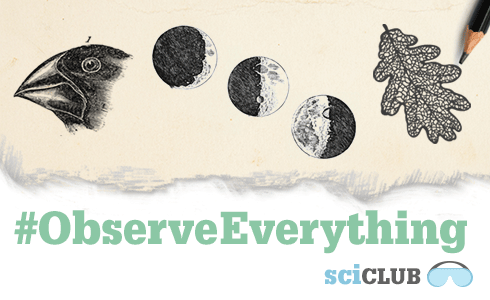On Today's Podcast
Into the Woods, From Chestnut Genetics To Tiny Forests
Genetic research could speed the restoration of the American chestnut tree. Plus, "rewilding" small spaces with fast-growing miniforests.
Listen NowFebruary 27, 2026
A new simulation shows large amounts of hydrogen in our planet’s core. Scientists report on what they found in 290-million-year-old vomit. Plus, a comedic play and a 20-year neurology study explore what we can do to prevent dementia and cognitive decline. And, a federal law aims to close the legal loophole that lets stores sell THC products from hemp.
Science Club #ObserveEverything
Go out and observe something interesting! Submit your in-depth observations with the hashtag #ObserveEverything.
12:08
MAVEN Maneuvers Into Mars’s Orbit
MAVEN makes into Mars’s orbit in time to meet a comet and begin unraveling mysteries of the Martian atmosphere.
17:22
‘Internal Medicine’ Gives a Resident’s Eye View of the Hospital
A writer-doctor’s stories reveal the hospital through the eyes of a resident.
5:43
Sprouting a Forest in the City
Foresters are piecing together the complicated ecosystem of the urban forest.
11:04
Plant Emissions: How Do Trees Interact With Pollution?
Certain tree species can add to pollution if they’re planted in certain locations.
11:34
Water on Earth Is a Million Years Older Than the Sun
The cloud of gas and dust that eventually condensed to form the Sun contained “thousands of oceans of water,” says astronomer Ted Bergin.
17:26
Stories to Make You Think BIG
With his new story about a 20-kilometer-high skyscraper, sci-fi author Neal Stephenson hopes to get engineers thinking big.
16:54
Science Friday Science Club: Observe Everything
The Science Club embarks on its next project and explores observation.
Picking Up Where We Left Off
An excerpt from Neal Stephenson’s story in “Hieroglyph: Stories and Visions For a Better Future.”
Art Bots and Talking Blenders: A Stroll Through Ars Electronica
Every September, the Ars Electronica Festival draws artists, scientists, and technologists to Linz, Austria, to swap ideas and show off cutting-edge artworks.
A Resilient Hybrid: Fused Staghorn Coral
This hybrid coral could withstand climate change better than its relatives.
Solve the Science Friday Crossword Puzzle!
Test your Science Friday knowledge with this crossword puzzle challenge by constructor Fred Piscop.
Inside the Box: Crossword Puzzle Constructing in the Computer Age
Computer software and word databases are changing the crossword puzzle game.
The Business of Surgery: Has Love Been Lost?
An excerpt from “The Cost of Cutting.”
Jumping Spider Shake Down
Can you match each jumping spider dance to its vibratory song?
12:07
The People’s March Against Climate Change
Ahead of the United Nations Climate Summit, the People’s Climate March in New York City will bring a public voice to the climate change discussion.
17:40
‘Dr.Fill’ Vies for Crossword Solving Supremacy
A computer program named “Dr.Fill” competes against human solvers for crossword puzzle glory.
7:24
Functional Features: The Evolution of the Human Face
Human social interaction may have been the reason faces evolved to be varied and unique.
8:57
Shake Your Silk-Maker: The Dance of the Peacock Spider
With their ornately colored bodies, rhythmic pulsations, and booty-shaking dance moves, male peacock spiders attract mates and researchers alike.

